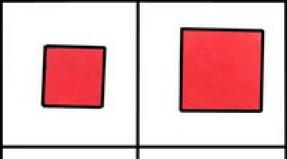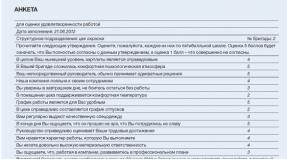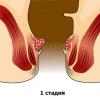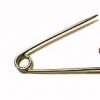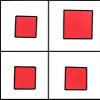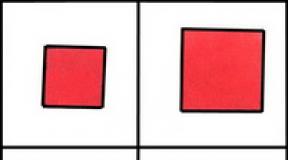Types of questions in Present Simple. Present Simple - Sentence construction and cases of using Present simple with question words
The Present Simple Tense. Exercises from the series “English for Beginners”
Repeat grammar
Exercise 1. Distribute the verbs into three columns depending on the reading of the ending -s/-es in the 3rd person singular: [s], [z], . If you forgot when -s/-es is added to an action verb, read it again
Work, go, know, change, buy, end, play, wash, ride, add, wish, drive, stay, watch, mix, open, do, say, clean, talk, visit, reach, sit, like, love, dance, close, speak, read, finish, fly, run.
If the verb ends in -y, preceded by a consonant, then it changes to i.
EXAMPLE I fly ... - He flies ... , but I buy ... - He buys ...
Exercise 2. Write the following verbs in the 3rd person singular form.
want hurry read eat think wash kiss catch have study carry fly cry go do
Before going further, remember the sentence construction patterns in Present Simple.

Learning to build affirmative sentences in the Present Simple
Exercise 3. Replace the pronoun I with the pronouns he or she according to the model.
Sample: I go to the office every day. - He go es to the office every day.
1. I write many letters every day. 2. I read books from the library. 3. I study grammar rules by heart 4. I usually go to work by bus. 5. I often meet my friends on the way to work. 6. I work in an office. 7. I come home very late. 8. I have dinner (supper) at 9 o’clock. 9. I go to bed at 12 o’clock. 10. I sleep very badly. 11. I often send emails in the evening. 12. I play the guitar every day.
Exercise 4. Add verb endings (-s or -es) where needed.
1. Don’t go…to school by bus. 2. She like...milk. 3. My father watch… TV in the evening. 4. I play… tennis on Sundays. 5. My brother play… football quite well. 6. My sister sing... very well. 7. She wash… her face and hands in the morning and in the evening. 8. I usually drink...tea for breakfast. 9. Jane do… her English exercises after school. 10. Peter drive… a car.
Exercise 5. Choose the desired form of the verb from brackets.
1. She (swim/swims) very well. 2. Luc (live/lives) in London. 3. Jack (come/comes) from the USA. 4. Betty (dance/dances) a little. 5. He (have/has) three brothers. 6. My granny (speak/speaks) French. 7. My cat (sleep/sleeps) on a mat. 8. I often (see/sees) Jane. 9. Ted (likes/likes) music. 10. Chris (cook/cooks) cakes quite well.
Learning to build negative sentences in the Present Simple
Remember the SCHEME for constructing a negative sentence.
es to the cinema.
He doesn't go to the movies. - Not doesn't go to the cinema.
Exercise 6. Change these sentences into negative ones. Use auxiliary verbs don't And doesn't.
1. Mary takes the dog for a walk in the evenings. 2. Peter buys a morning newspaper every day. 3. I come to every lesson. 4. We go to the seaside every summer. 5. You go shopping on Saturday mornings. 6. Peter plays the piano very well. 7. The sun rises in the west. 8. My big brother knows everything. 9. Dogs like cats. 10. Some children like chocolate. 11. It rains very often in summer.
Exercise 7. Fill in the blanks using don't or doesn't.
1. We...listen to the radio every night. 2. Mr Johnson...have a private office. 3. The boys...study at the library every day. 4. These exercises…seem very difficult. 5.The men… always eat at that cafe. 6. That tall man... work for this company. 7.The people…speak English very well.
Exercise 8. Make these sentences negative.
1. Bess helps her mother. 2. My friend plays the piano. 3. We listen to music. 4. You make a lot of mistakes. 5. The farmer works in the field. 6. The little boy rides a bike. 7. He looks at the pictures in the book. 8. The workman paints the house. 9. Richard and Henry swim in the river in summer. 10. John goes to school by tram. 11. She gets up at eight o’clock. 12. He has tea for breakfast. 13. She usually has dinner at two o’clock. 14. Peter lives in London.
Learning to build interrogative sentences in the Present Simple
A question that begins with an auxiliary verb do/does, called general This question corresponds intonation question In russian language.
COMPARE
He often goes to the cinema. - He often goes es to the cinema.
Does he often go to the movies? — Does he often goes to the cinema?
Exercise 9. Fill in the blanks using auxiliary verbs do or does.
1. … you want cream and sugar in your coffee? 2. … the children go to bed very early? 3. ... that girl comes from South America? 4. … do you know that Italian student? 5. …Miss Stewart prefer coffee or tea? 6. …your English lessons seem very difficult? 7. … those two women understand that lesson?
Exercise 10. Convert these sentences into interrogative ones. Ask general questions using auxiliary verbs do And does.
1. Mary takes the dog for a walk in the evenings. 2. Peter buys a morning newspaper every day. 3. I come to every lesson. 4. We go to the seaside every summer. 5. You go shopping on Saturday mornings. 6. Peter plays the piano very well. 7. The sun rises in the east. 8. My big brother knows everything. 9. Dogs don’t like cats. 10. All children like chocolate. 11. It rains very often in autumn.
Exercise 10.1 Remember how to build short answer in Present Simple. Answer the questions.
- Do you watch TV in the evening? 2. Do you go to bed late? 3. Do you sleep well? 4. Do you have breakfast at home? 5. Does your friend often visit you? 6. Does your friend read books? 7. Does it often rain in winter? 8. Does it often rain in autumn? 9. Does the sun rise in the west? 10. Does the sun rise in the east?
Exercise 11. Convert these sentences into interrogative ones. Start questions with Wh-words in brackets.
1. Ann watches TV. (How often?)…
2.I write emails to my parents. (How often?)…
3. They have dinner in the evening. (What time/usually?) ...
4. Tom works. (Where?) ...
5. Mark and his sister go to the cinema. (How often?)…
6. People do stupid things. (Why?) ...
7. The car breaks down. (How often?) ...
Exercise 12. Make interrogative sentences from these words. Use the question outline (?)
1. buy/you/do/what/at the shops
2.is/who/that man
3. your parents/moment/where/at the/are
4. you/how/come/to school/do
5. is/your car/where
Exercise 13. Make up questions for these sentences, starting with the words indicated in brackets.
The Green s— Green Family
1. The Greens live in Tomsk. (Where)
2. She lives in Green Street. (Where)
3. Grace usually has supper at nine o’clock. (When)
4. Tim reads many books. (Does)
5. Sally speaks Spanish. (Does)
6. We have English lessons on Tuesdays and Fridays. (Do...or...)
7. They work on a farm. (Where)
8. I make my bed in the morning. (Do)
9. The children play in the park, not in the square. (Do...or...)
10. They do their homework after school. (When)
11. I have a glass of milk for supper. (What)
12. We like watching TV in the evening. (Do)
Repetition
Exercise 14. Insert do or does instead of dots.
1. … do you sleep well? Yes, I… .
2. …your sister wash the plates? Yes, she… .
3. What... the teacher ask you to do?
4. ... Kitty read English books? Yes, she… .
5. He... not like porridge.
6. We… don’t go to school in summer.
Exercise 15. Insert does, is or has instead of dots.
1. My sister… very clever.
2. What...she do?
3. Who...he?
4. She...a teacher at school.
5. Where... does your sister live?
6. Gretna…a little village in the country.
7. ...Mary fine?
8. … Sam have any pets?
9. This girl… called Mary.
10. She...a lot of friends.
Exercise 16. Put the verbs given in brackets in the correct form.
1. Not (be) a good footballer. 2. We (be) at school. 3. The roses (be) very beautiful. 4. I (have) an interesting book. 5. The sun (be) very hot. 6. I (do) my lessons carefully (carefully). 7. Elizabeth (have) a new dress. 8. The students (do) English lessons three times a week. 9. I (have) a camera. 10. Harry (be) a tennis player. 11. Tony (have) a coat. 12. The children’s hands (be) dirty. 13. Mike (be) late for school. 14. Ted (be) a good swimmer.
Exercise 17. Make up questions from the following words. Be mindful of the order of words in a sentence.
1. Does/what/up/get/she/time?
2. Do/breakfast/does/what/she/before?
3. For/does/have/breakfast/she/what?
4. To/how/she/work/does/go?
5. She/does/what/evening/do/the/in?
6. Bed/time/does/to/what/she/go?
Exercise 18. Write questions for the answers.
1. (When... ?)______________________
She gets up at eight o'clock.
2. (What...do...?)_________________
She has breakfast at nine o’clock.
3. (Where...?) ______________________
She works in the bookshop.
4. (Where...?)_________________
She has lunch in a cafe.
5. (When...?)_________________
She comes home at half past five.
6. (What...do?)___________
She watches TV in the evening.
7. (When...?)_________________
She goes to bed at 10 o’clock.
Exercise 19. Make up questions from these words. Answer them. Make the necessary changes.
1. Where/you/come/from — _____________________
2. Where/you/live - __________________________
3. Where/you/work - __________________________
4. What/your father/do - _______________________
5. Where/your mother/live - _____________________
Exercise 20. Insert the adverbs indicated in brackets into these sentences. Remember the place of adverbs in a sentence.
1. She comes home late. (Always)
2. George eats meat. (Never)
3. You see her in the street. (Sometimes)
4. Does Tim go to school by taxi? (Usually)
5. We spend summer in France. (Usually)
6. Tom and Tim go to the cinema on Mondays. (Often)
7. My dog barks. (Sometimes)
8. Kate goes swimming. (Often)
9. Simon does his English homework. (Never)
10. I dance at discos. (Seldom)
Exercise 21. Translate to English.
- I usually get up at 7 o'clock. I like to get up early.
- Children often go for walks after school. They don't want to go home.
- My father always reads in the evening. He likes to read.
- Sometimes she goes to the cinema. She doesn't like going to the theater.
- My mother rarely watches TV. Do you like watching TV?
Exercise 22. Correct the mistakes in the sentences.
- The stars shines in the sky.
- I like watch sunset.
- They do go to the seaside every year.
- The leaves are fall down in autumn.
- The sun is bright.
I hope that by completing 22 exercises on Present Simple, you have learned to compose sentences grammatically correct. You can send them to the teacher for review at: [email protected]. Cost of verification all exercises 150 rubles. Selectively 1 sentence. - 1 ruble. If these exercises are not enough, we also recommend additional exercises on Present Simple Tense. FURTHER
Present Simple (Indefinite) is translated into Russian as simple (indefinite) time. The Present Simple can have three forms - affirmative, negative and interrogative.
Formation of affirmative, negative and interrogative sentences Present Simple
In English, the affirmative form of the Present Simple is an infinitive without the particle to. In the third person singular, the suffix –s or –es must be added to the verb:
I/you/we/they work. – He/she/it works. I work/you work/we work/they work – He/she/it works.
When forming negative sentences, the auxiliary verb do and does appear with the negative particle not:
I/you/we/they don’t want to eat soup. – I don’t want/you don’t want/we don’t want/they don’t want to eat soup. He/she/it doesn’t want to eat soup. - He/she/it (for example, an animal) does not want to eat soup.
Interrogative sentences in English in the Present Simple are also formed using the auxiliary verb do/does, which is used only with semantic verbs. The word order in such sentences is as follows: 1. Auxiliary verb 2. Subject 3. Main verb 4. Object 5. Circumstance:
Do you like reading books in the evening? – Do you like reading books in the evening?
If a sentence contains a modal verb, for example, can - be able, or a linking verb to be, then the modal verb itself and the verb to be come first.
Can you swim well? -Can you swim well?
Are you a good swimmer? -Are you a good swimmer?
The verb to be is translated into Russian as “to be, to be.” In the Present Simple it has three forms - am/is/are. In English it can be either a semantic verb or a linking verb.
The book is on the table. - The book is on the table (semantic verb).
The weather is bad. - The weather is bad (linking verb).
In negative and interrogative sentences, the verb to be does not require the use of an auxiliary verb.
He is not a pupil. - He's not a schoolboy.
Are you a teacher? - You are a teacher?
The question often arises: when should you use the auxiliary verb to do, and when should you use the verb to be? The answer is simple: if a sentence has a verb and it expresses an action, then we need the verb to do, and if the sentence expresses a state, then to be.
Examples:
He plays. - Does he play? - He plays?
She works. - Does she work? - She works?
She is a student. - Is she a student? - She is a student?
We are tired. -Are we tired? - We are tired?
Present Simple: questions.
There are 5 types of questions in English: 1. General Questions 2. Special Questions 3. Alternative Questions 4. Disjunctive Questions 5. Subject Questions. Below we will look at each group in more detail.
1. General Questions
This type of question, also called Yes – No question, involves confirming or refuting the content of the statement. That is, the question can be answered briefly yes or no.
The word order in this type of question can be as follows:
2. Special Questions
A special question is a question addressed to a specific member of the sentence. This type of question is also called Wh-question, and it serves to clarify detailed information. This question cannot be answered simply “yes” or “no.”
Question words include:
· what? - What?
· who? - Who?
· when? - When?
· where? - Where?
· why? - Why?
· which? - which?
· whose? - whose?
Examples of special questions in Present Simple:

3. Alternative Questions
An alternative question in the Present Simple involves choosing between two options, offering one of the possible answers.
There are three options for constructing alternative questions:
- Alternative questions ending with …or not? - … or not? , (may express impatience or irritation)
It’s 9 o’clock already. Are you ready or not? - It’s already 9 o’clock. Are you ready or not?
- Alternative questions constructed using a general or specific question.
Do you work as a translator or interpreter? - Do you work as a translator or an interpreter? (1st general question + or + 2nd general question in abbreviated form)
- A shortened alternative question that can be heard in informal communication.
Coffee or tea? - Coffee or tea? (Obviously they offer a choice of drinks)
Which is your article: this one or that one? -Which article is yours: this one or that one? (Special question + homogeneous members connected by the union or)
As with special questions, the answer to the alternative question must be complete.
4. Disjunctive Questions
A dividing question, as a rule, consists of two parts: expanded (narrative) and shortened (interrogative). The interrogative clause is a short general question that consists of an auxiliary verb, a modal or linking verb, and a pronoun that replaces the subject of the declarative clause. This part is translated into Russian as “isn’t it? is not it? after all?".
If in the narrative part of the separating question:
- the verb is in the affirmative form, then in the second part the auxiliary verb will have a negation and vice versa.
She goes to school, doesn’t she? – She goes to school, doesn’t she?
He is a teacher, isn’t he? - He's a teacher, right?
Mary can’t swim, can she? – Mary can’t swim, right? - if indefinite pronouns anyone, everyone, someone, or negative pronouns no one, nobody are used, then the interrogative part contains the personal pronoun of the 3rd person plural. they:
Everyone knows about it, don’t they? – Everyone knows about this, right?
- if the negative pronouns nothing, none, or the adverbs nowhere, barely, hardly, never, rarely, rarely are used, then the verb in the interrogative part will be in the positive form:
He rarely goes there, does he? – He rarely goes there, right?
- if there is an incentive, for example, let’s, then the interrogative part will contain the verb shall:
Let's go for a walk at 7, shall we? - Let's go for a walk at 7, okay?
5. Questions to the subject (Subject Questions)
In English, questions to the subject can be asked using the question words who and what. Typically, who is used with animate nouns, and what with inanimate nouns. It should be noted that in questions to the subject the word order is direct:

There is also another option for constructing questions to the subject:

So, the options were discussed in detail, how and what questions can be asked in the Present Simple.
In addition, it is worth mentioning the present simple tense markers, which can also be used in present simple interrogative sentences.
· always - always
· usually - usually
generally – as a rule
rarely - rarely
· sometimes - sometimes
· never - never
· often - often
· every day/week/month – every day/every week/every month
· once/twice/three times a week/a month/a year – one/two/three times a week/month/year
Does she often go to the doctor? – Does she often go to the doctor?
How often does he usually play tennis? – How often does he usually play tennis?
Do you sometimes go shopping with your Mom? – Do you sometimes go shopping with your mother?
Are you always a good student? – Are you always an exemplary student?
Present simple - the most easy time in English.
So,
How to ask a question in Present Simple
Look at the order of the words. Click to enlarge.
To ask a question in the simple present tense, put -Do- at the beginning of the question.
Do you hear me?
Can you hear me?
Do they sleep?
They are sleeping?
If you need to ask a question about Him/Her, add -s- to do
Does she sing?
She sings?
Does he smoke?
He smokes? Interrogative sentences examples in present simple
1.Are they happy? They are happy?
2. Does your dog like cheese?
Does your dog love cheese?
3. Does your mum read magazines? Does your mom read magazines?
4. How do children get to school in China
How do children get to school in China?
5. Does he drive a BMW?
Does he drive a BMW?
6. Is he a good man?
He is a good man? 7. Do you have any pets in your class?
Do you have pets in your class? 8. Does she like Brad Pitt?
Does your sister like Brad Pitt?
4. What can you draw?
What can you draw? 5. Where does he go on vacations?
Where is he going on vacation? 6. What kind of a pen do you want?
What kind of pen do you want?
7. What do you do on Sundays? What do you do on Sundays?
8. Why do you drink so much water? Why do you drink so much water?
9. When do your parents have lunch? When do your parents have lunch?
10. How many days a week does she work?
How many days a week does she work?
EXERCISES ON Present Simple - asking questions
Exercise #1 Ask questions in English in the simple present tense
1. Are your parents at home?
2. What do you mean?
3. Do you remember my sister?
4. What day is it today?
5. Can you hear me?
6. Does he smoke?
7. What does a cat eat?
8. Are you working?
9. Does she care about you?
10. What time do you get up?
Correct answers to exercise #1
1. Are your parents at home?
2. What do you mean?
3. Do you remember my sister?
4. What’s the date today?
5. Do you hear me?
6. Does he smoke?
7. What does a cat eat?
8. Do you work?
9. Does she care about you?
10. What time do you get up?
Exercise 2. Fill in the missing do / does / is / are
1. Where ___ you?
Where are you?
2. ___ you have a family?
Do you have a family?
3. ___ you work?
Do you work?
4. ___ you jog?
You run? /in the morning or at the gym/ 5. What city ___ do you live in?
What city do you live in?
6. ___ you work or study?
You study or work?
Actions expressed in the Present Simple refer to the present tense, but, as a rule, do not occur at the moment of speech. This is how Present Simple differs from the present tense in Russian. The Russian present tense denotes both actions that relate to the present period of time and actions that occur at the moment of speech. In English, to express the latter, another form of the present tense is used, namely the Present Continuous. You can see this with this example:
- Present Simple: I speak Russian. - I speak Russian. (meaning, I can generally speak Russian)
- Present Continuous: I am speaking Russian - I speak Russian. (meaning - I speak Russian at the moment)
Rules for the formation of Present Simple Tense
And now it’s time to move on to the main thing - to the rules for forming Present Simple Tense in English.
Affirmative form of Present Simple Tense
To form the affirmative form of the Present Simple, auxiliary verbs are not required. For persons I, you singular and we, you, they plural, the forms of the verb in the Present Simple coincide with the infinitive form. This applies to both regular and irregular verbs.
Only in the 3rd person singular ( he, she, it) ending is added to the verb − s or —es. These endings are pronounced like [s], [z] or . For example:
- I make - he make s
- I sing -he sing s
- I rise - he rise s[ˈraɪzɪz]
The rules for pronunciation and writing of these endings are the same as for plural endings of nouns. You can find them in the article Plurals of nouns in English.
in the affirmative
Question form Present Simple Tense
The interrogative form is formed using an auxiliary verb to do, with the exception of modal verbs and verbs to be And to have. But we'll talk about these exceptions a little later. So, auxiliary verb to do used in forms do or does(For he, she, it), agreeing in person and number with the subject, and the main verb in all persons has the infinitive form.
To form the interrogative form of the Present Simple, the auxiliary verb do (does) is placed first before the subject, and the subject is followed by the main verb in the infinitive form.
Table
verb conjugations in Present Simple Tense
in interrogative form
Negative form of Present Simple Tense
The negative form is also formed using an auxiliary verb do (does), but in combination with a negative particle not. So, the subject comes first, then the auxiliary verb do (does) + negative particle not, and the main verb in the infinitive form.
Auxiliary do (does) usually merges into one word with a particle not:
- don't - don't
- does not − doesn't
Verb conjugation table in Present Simple Tense
in a negative form
Verb conjugation rules in Present Simple TenseExceptions to the rules
Now is the time to talk about exceptions to the rules! Remember!
The modal verbs can, ought, may, should, must, would, as well as the verbs to be and to have do not form the Present Simple forms according to the general rules!
In the affirmative form, modal verbs in the 3rd person singular form do not have an ending − s or —es:
- I can—he can
- I may -he may
- I ought—he ought
- I must -he must
- I should—he should
- I would -he would
Verb to be in the affirmative form has the forms am, is, are, was, were, depending on person and number, and the verb to have forms − have And has.
In interrogative and negative form, all these verbs are used as auxiliaries!
Review the following tables carefully and memorize them!
Conjugation table for the verb to be in the Present Simple Tense
| Number | Face | Affirmative form | Interrogative form | Negative form |
| Unit h. | 1
2 3 | I am
You are He/She/It is | Am I? Are you? Is he/ she/ it? | I am (I"m) not
You are not (aren't) He/She/It is not (isn"t) |
| Mn. h. | 1
2 3 | We are
You are They are | Are we? Are you? Are they? | We are not (aren't)
You are not (aren't) They are not (aren't) |
Conjugation table for the verb to have in the Present Simple Tense
| Number | Face | Affirmative form | Interrogative form | Negative form |
| Unit h. | 1
2 3 | I have
You have He/She/It has | Have I? Have you? Has he/ she/ it? | I have not (haven't)
You have not (haven't) He/She/It has not (hasn't) |
| Mn. h. | 1
2 3 | We have
You have They have | Have we? Have you? Have they? | We have not (haven't)
You have not (haven't) They have not (haven't) |
It should be noted that such a conjugation of the verb to have occurs only in cases where to have denotes the possession of something.
- In American English, and in this meaning, it is preferable to conjugate the verb to have using the auxiliary verb to do according to the general rules of Present Simple: British - I haven't
- any pens. American - I haven't
don't have
- If the verb to have means - to receive, take, accept, experience, etc., then it is conjugated according to the general rules, both in British and American. For example: Do have you
any difficulties getting there? − Is it difficult for you to get there? In informal British English, the construction is often used instead of the verb to have have got
- I , in which have plays the role of an auxiliary verb. For example: haven't got
any pens − I don't have any pens
- Another way to express the negative form of the verb to have is to use the particle no instead of not a/ not any: I haven’t got any pens = I haven’t got any pens = I have no
pens modal verbs in Present Simple Tense
(using the example of the verb - can)
| Number | Face | Affirmative form | Interrogative form | Negative form |
| Unit h. | 1
2 3 | I can
You can He/She/It can | Can I? Can you? Can he/ she/ it? | I cannot (can't)
You cannot (can't) He/She/It cannot (can't) |
| Mn. h. | 1
2 3 | We can
You can They can | Can we? Can you? Can they? | We cannot (can't)
You cannot (can't) They cannot (can't) |
Present Simple Tense is used:
1. When expressing repeated or constant actions in the present tense. Very often in such sentences there are time adverbs that express the frequency of the action:
- аlways - always
- often - often
- daily - daily
- usually - usually
- every day - every day
- regularly - regularly
- never - never
- sometimes - sometimes
- rarely - rarely
- rarely - infrequently
In most cases, time adverbials are placed between the subject and the predicate. Examples:
- I always help my brother in his studies. — I always help my brother with his studies.
- She usually gets up at eight o'clock. — She usually wakes up at eight o’clock.
- We have breakfast every day.− We have breakfast every day.
- Do you often visit your Grandmother? — Do you often visit your grandmother?
- Sandra daily makes exercises. — Sandra does exercises every day.
- I rarely meet with Jim. — I rarely meet Jim.
- Nick never goes home before nine. Nick never goes home before nine.
- My mother doesn't often give me work. — My mother doesn’t often give me work.
- She sometimes goes in our swimming-pool. — She sometimes goes to our pool.
The meaning of repeated or constant actions can be shown not only by adverbs, but also by the Present Simple form itself, for example, if the place or time of a regular action is indicated, or in the case of a list of successive actions.
- Nick goes to school at 9 o'clock. — Nick goes to school at 9 o’clock.
- I wake up, wash, have my breakfast, dress and go to university. — I wake up, wash my face, have breakfast, get dressed and go to the university.
2. When expressing an action or property that characterizes the subject at the current moment in time or constantly. For example:
- Nick speaks Russian very well. — Nick speaks Russian very well.
- My brother plays violin and sings. — My brother plays the violin and sings.
- He is a student. - He is a student.
- What is your name? - What is your name?
3. When expressing general provisions or well-known truths:
- The earth goes round the sun in 24 hours.− The earth goes around the sun in 24 hours.
- Two and two is four.− Twice two is four.
4. When denoting actions or states that occur at a given moment of speech, if they are expressed by verbs that are not used in the present continuous tense. Usually these are verbs that denote feelings, states, desires, thoughts, etc.
- Verbs of desire and expression of will: to want - to want, to desire - to desire, to wish - to desire, to mind - to worry, to refuse - to refuse, to forgive - to forgive, to demand - to demand...
- Verbs of feelings and emotions: to love - to love, to hate - to hate, to like - to like, to dislike - not to like, not to love, to adore - to adore, to respect - to respect, to detest - to disgust, to care for - to love, ...
- Verbs of physical perception and thinking: to hear - to hear, to see - to see, to smell - to smell, to agree - to agree, to believe - to believe, to doubt - to doubt, to notice - to notice, to forget - to forget, to remember - to remember, to know - to know , to suppose - to believe, to understand - to understand, to recognize - to recognize, to realize - to understand, to mean - to mean, to imagine - to imagine, to imagine, to fancy - to imagine, to perceive - to perceive, to think - to consider ...
- Verbs general meaning: to be - to be, to have - to have, to belong to - to belong, to differ from - to differ, to concern - to touch, to consist of - to consist of, to contain - to contain, to resemble - to remind, to depend on - to depend on , to own - to own, to equal - to be equal, to include - to include, to involve - to involve, to lack - to lack, to matter - to matter, to owe - to owe, to possess - to possess, to deserve - to deserve, to remain - remain, to result - lead to...
For example:
- We respect our parents very much. — We respect our parents very much.
- What do you hear? -What do you hear?
- I don't see her here. - I don't see her here.
- We don't understand you. - We don't understand you.
- My mother don't allow me to go there. — My mother doesn’t allow me to go there.
5. When expressing future actions or states (presumed in the future) in adverbial subordinate clauses of time and conditions after conjunctions:
- if - if
- when - when
- unless - if not
- аs son as - as soon as
- till, until - yet (not)
- before - before
In Russian, such subordinate clauses are translated into the future tense. For example:
- I'll wait till you finish your homework. − I'll wait until you finish your homework.
- What shall we do if does it snow tonight? — What will we do if it snows tonight?
- Come tomorrow unless you are very busy. - Come tomorrow if you are not too busy.
- Let's wait until the rain stops. - Let's wait until the rain stops.
- I'll join you as soon as I can. - I'll join you as soon as I can.
Don't confuse these offers with additional ones subordinate clauses after unions when, if, which use the future tense. For example:
- Ask him if he will do it. − Ask him if he will do it.
5. When expressing planned actions in the near future with verbs:
- to leave - to leave
- to come - to come, to arrive
- to start - to go
- to return - return
- to come back - return
- to arrive - to arrive
- to go - to leave, leave, depart
For example:
- They leave next year. — They are leaving next year.
- We come back tomorrow. - We're coming back tomorrow.
As you can see, despite the fact that the structure of the formation of Present Simple Tense is one of the easiest among all tense forms, you will still have some work to do. I advise you to learn the basic rules for forming and using the Present Simple by heart. Good luck in learning English!

Answers: 1. is, is. 2. is, is. 3. is, is. 4. are, am. 5.am. 6. is, is. 7. is, is. 8. are, are, are. 9. is, is. 10. are, am. 11. is, is, is. 12. is, is. 13. is, is. 14.is. 15. is, is. 16.is. 17.is. 18.is. 19.is. 20. is, are, is, is, is, is, is, is.
Exercise 2. Write the verbs in the correct column in the third person singular according to the rules for writing words.
Cook, study, clean, buy, teach, go, fry, like, discuss, watch, drink, help, copy, run, tidy, open, pay, catch, swim, ride, do, mix, listen, fly, wish, meet, marry, come.
| -es | -ies | |
Answers: -s: cooks, cleans, buys, likes, drinks, helps, runs, opens, pays, swims, rides, listens, meets, comes.
-es: teaches, goes, discusses, watches, catches, does, mixes, wishes.
-ies: studies, fries, copies, tidies, flies, marries.
Exercise 3. Rewrite the sentences in the third person singular using the words in brackets.
- We always help our grandparents. (Mike)
- They like to swim in the swimming-pool. (Andy)
- I make the best pizza in our town. (Vicky)
- We meet our friends every weekend. (Larry)
- I know everything about cats. (Dolly)
- We write wonderful poems. (Nelly)
- You understand French well. (Garry)
- I teach my little brother to ride a bike. (Sam)
- Children often play with the ball in the yard. (Pam)
- Birds sing merrily in the tree. (A bird)
- You often fly to Prague. (My cousin)
- They always watch TV in the evening. (His mother)
- We sometimes see him in the library. (Alice)
- I usually wash the car on Saturday. (My father)
- You never tell lies. (Bill)
Answers: 1. Mike always helps his grandparents. 2. Andy likes to swim in the swimming-pool. 3. Vicky makes the best pizza in our town. 4. Larry meets our friends every weekend. 5. Dolly knows everything about cats. 6. Nelly writes wonderful poems. 7. Garry understands French well. 8. Sam teaches my little brother to ride a bike. 9. Pam often plays with the ball in the yard. 10. A bird sings merrily in the tree. 11. My cousin often flies to Prague. 12. His mother always watches TV in the evening. 13. Alice sometimes sees him in the library. 14. My father usually washes the car on Saturday. 15. Bill never tells lies.
Exercise 4. Complete the sentences with suitable words from brackets.
- … likes to watch shows on TV. (I/you/she)
- …gather berries in the wood in summer. (he/we/it)
- …water the flowers three times a week. (I/she/he)
- …usually drinks tea in the morning. (I/he/they)
- …prefers to stay at home in the evening. (I/my sister/my cousins)
- …works properly, (you/the workers/my watch)
- …never wears a scarf in winter. (Rita/we/my friends)
- …mend the roof of the house every summer, (his uncle/you/my grandfather)
- … spend winter holidays in the mountains. (her cousins/she/Fred)
- … sometimes goes to the theater. (my Granny/my parents/those sisters)
Answers: 1.She; 2.We; 3.I; 4. He; 5. My sister; 6. My watch; 7. Rita; 8.You; 9. Her cousins; 10. My Granny.
Exercise 5. Put the verbs in brackets into the correct form.
- Frank sometimes… (to drink) milk for breakfast.
- They... (fo like) to skate in winter.
- My friends and me sometimes… (to walk) in the park after school.
- His parents … (to spend) their vacations in the countryside.
- Her brother… (to work) as a security officer.
- The lessons in our school… (to start) at eight o’clock.
- Monica… (to walk) her dog twice a day.
- We sometimes… (to play) a game of chess in the evening.
- My Granny usually… (to buy) vegetables at the market.
- This show always… (to begin) at five o’clock.
- My cousins often … (to visit) me at weekends.
- Susan usually … (to have) a shower in the morning.
- It often… (to rain) in autumn.
- This car... (to cost) too much for us.
- You sometimes… (to take) your children to the theme park.
Answers: 1. drinks; 2.like; 3. walk; 4. spend; 5.works; 6.start; 7. walks; 8.play; 9. buys; 10.begins; 11. visit; 12.has; 13. rains; 14. costs; 15. take.
Exercise 6. Complete the sentences don’t or doesn’t.
- You...understand my idea.
- Your brother... often wash his car.
- My parents… get up late on week-days.
- I… buy a lot of sweets for my children.
- Kate…know the rules of this game.
- Carol and Pam … eat much for breakfast.
- Her uncle...wear jeans.
- My sister and me…want to go skating.
- I... expect you to follow my advice.
- Little Johnny…like to play alone.
- The car engine...work properly.
- My classmates... take part in this competition.
- This article...contain any useful information.
- These apples…look fresh.
- Some people...like to travel by plane.
Answers: 1. don't; 2. doesn’t; 3. don't; 4. don't; 5. doesn't; 6. don't; 7. doesn't; 8. don't; 9. don't; 10. doesn't; 11.doesn’t; 12. don't; 13. doesn't;
14.don’t; 15. don't.
Exercise 7. Make the sentences negative.
- Martin often goes fishing in summer.
- You always buy fresh newspapers.
- His mother bakes tasty pies.
- This fruit salad tastes delicious.
- Pineapples grow in trees.
- My dog eats tomatoes and pears.
- People know a lot about the life on other planets.
- I always travel with my grandparents.
- They plant flowers and trees every spring.
- Girls always like to do the washing-up.
Answers: 1. Martin doesn’t often go fishing in summer. 2. You don’t always buy fresh newspapers. 3. His mother doesn’t bake tasty pies. 4.This fruit salad doesn’t taste delicious. 5.Pineapples don’t grow in trees. 6.My dog doesn’t eat tomatoes and pears. 7.People don’t know a lot about the life on other planets. 8. I don’t always travel with my grandparents. 9.They don’t plant flowers and trees every spring. 10. Girls don’t always like to do the washing-up.
Exercise 8. Complete the sentences don’t or doesn’t and give affirmative and negative answers to the questions.
- … do you like to travel?
- …your friend go in for sports?
- …do your parents like to play computer games?
- …your father drive a car?
- …your mother watch the news on TV in the evening?
- …your classmates always come to school at time?
- ...do your grandparents live in the country?
- …your mother often meet her friends?
- … do you have a dream?
- … do you often visit your grandparents?
Answers: 1. Do you like to travel? - Yes, I do./No, I don’t. 2. Does your friend go in for sport? - Yes, he (she) does./No, he (she) doesn’t. 3. Do your parents like to play computer games? - Yes, they do./No, they don’t. 4. Does your father drive a car? - Yes, he does./No, he doesn’t.
5. Does your mother watch the news on TV in the evening? - Yes, she does./No, she doesn’t. 6. Do your classmates always come to school at time? - Yes, they do./No, they don’t. 7. Do your grandparents live in the country? - Yes, they do./No, they don’t. 8. Does your mother often meet her friends? - Yes, she does./No, she doesn’t. 9. Do you have a dream? - Yes, I do./No, I don’t. 10. Do you often visit your grandparents? - Yes, I do./No, I don’t.
Exercise 9. Make the sentences interrogative.
- Liz and her sister often go skating to the skating-rink.
- Our teacher always prepares us for tests.
- Her dog likes to sleep on the sofa.
- We usually make photos for the school newspaper.
- Den often goes on a ride with his friends.
- Ted and Victor prefer to travel by car.
- It often rains in spring.
- His sister runs a small cafe.
- The Harrods usually visit their relatives in the country.
- All children like sweets and ice cream.
Answers: 1. Do Liz and her sister often go skating to the skating-rink? 2.Does our teacher always prepare us for tests? 3.Does her dog like to sleep on the sofa? 4.Do we usually make photos for the school newspaper? 5.Does Den often go on a ride with his friends? 6.Do Ted and Victor prefer to travel by car? 7. Does it often rain in spring? 8.Does his sister run a small cafe? 9.Do the Harrods usually visit their relatives in the country? 10. Do all children like sweets and ice cream?
Exercise 10. Make up sentences by arranging the words in the correct order.
- help/sister/with/your/washing-up/Does/you?
- on/early/He/Sunday/up/hates/get/to.
- much/the/don’t/seaside/at/We/time/spend.
- changes/spring/The/often/in/weather.
- you/relatives/visit/Do/often/your?
- phone/doesn’t/my/He/number/know.
- any/in/vegetables/grandparents/summer/her/Do/grow?
- often/trips/towns/goes/cousin/to/business/My/on/other.
- you/before/hands/always/wash/Do/meals/your?
- sugar/drink/My/without/tea/doesn’t/mother.
Answers: 1) Does your sister help you with washing-up? 2) He hates to get up early on Sunday. 3) We don’t spend much time at the seaside. 4) The weather often changes in spring. 5) Do you often visit your relatives? 6) He doesn’t know my phone number. 7) Do her grandparents grow any vegetables in summer? 8) My cousin often goes on business trips to other towns. 9) Do you always wash your hands before meals?
10) My mother doesn’t drink tea without sugar.
Exercise 11. Put the verbs in brackets into the correct form.
- Where … your brother usually … (to go) after classes? - He usually… (to go) to the swimming-pool. He... (to have) trainings four times a week.
- Why … your sister always … (to get up) so early in the morning? - Because she … (to help) my mother to cook breakfast for the whole family.- … you … (not to cook) breakfast for yourself? - No, I…. I usually… (to walk) the dog before going to school.
- What... do you usually... (to do) on Saturdays? - Well, in the morning I … (to go) shopping with my mother and then I … (to take) my younger sister to the Art Studio. She … (topaint) very well and … (to dream) of becoming a designer.- … you … (to meet) your friends on Saturdays? - Of course, I… . We often… (to go) to the cinema or to the disco on Saturday evenings.
- Why... Fred... (to need) to buy flowers? - It... (to be) his sister’s birthday today. She … (to love) flowers and Fred … (to believe) it … (to be) the best present for her.
- What time… this program… (to start)? - It always... (to start) at eight in the evening.-... you always... (to watch) it? - No, I... (not always to watch) it because sometimes I have to meet my younger brother at the tram stop. He often… (to return) from the football training at this time.
Answers: 1. Where does your brother usually go after classes? - He usually goes to the swimming-pool. He has trainings four times a week. 2. Why does your sister always get up so early in the morning? - Because she helps my mother to cook breakfast for the whole family.- Don’t you cook breakfast for yourself? - No, I don’t. I usually walk the dog before going to school. 3. What do you usually do on Saturdays? - Well, in the morning I go shopping with my mother and then I take my younger sister to the Art Studio. She paints very well and dreams of becoming a designer.- Do you meet your friends on Saturdays? - Of course, I do. We often go to the cinema or to the disco on Saturday evenings. 4. Why does Fred need to buy flowers? - It is his sister’s birthday today. She loves flowers and Fred believes it is the best present for her. 5. What time does this program start? - It always starts at eight in the evening.- Do you always watch it? - No, I don’t always watch it because sometimes I have to meet my younger brother at the tram stop. He often returns from the football training at this time.
WELL DONE!

Read also...
- Pin interpretation of the dream book Why do you dream of pins in your mouth
- Tasks for children to find an extra object
- Population of the USSR by year: population censuses and demographic processes All-Union Population Census 1939
- Speech material for automating the sound P in sound combinations -DR-, -TR- in syllables, words, sentences and verses
